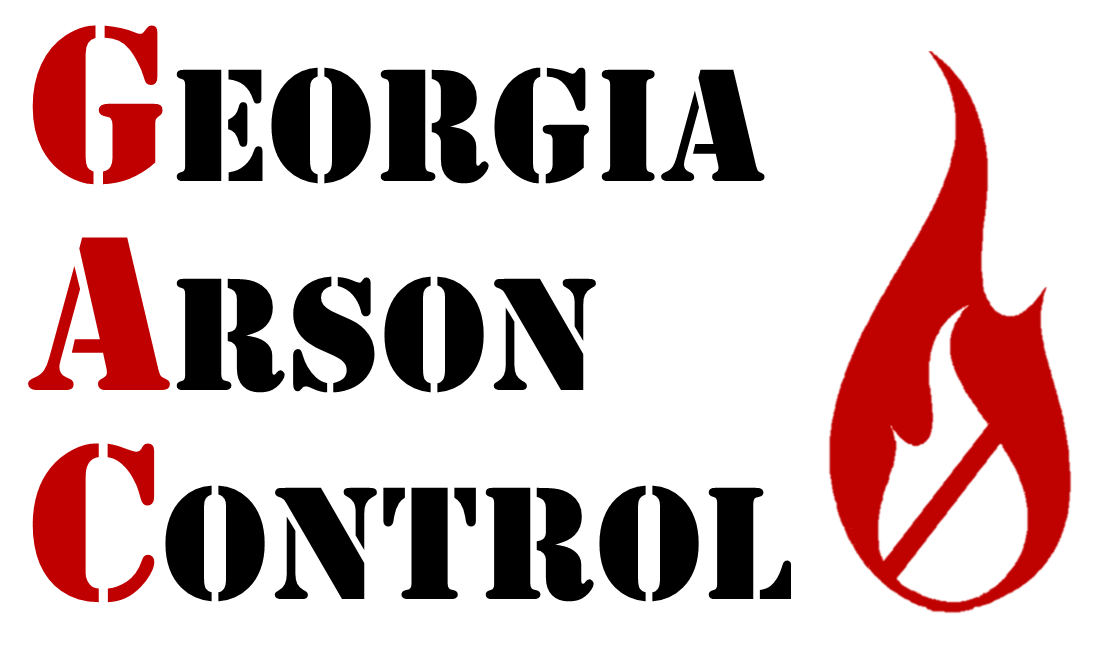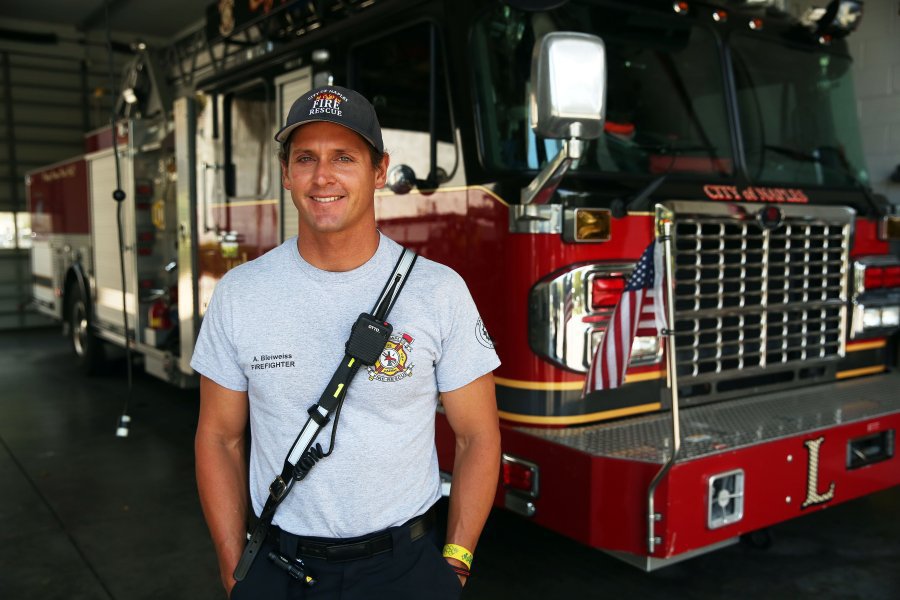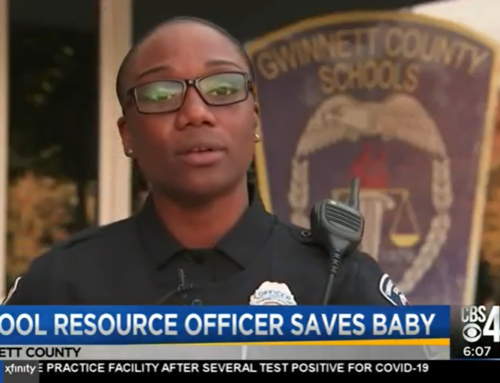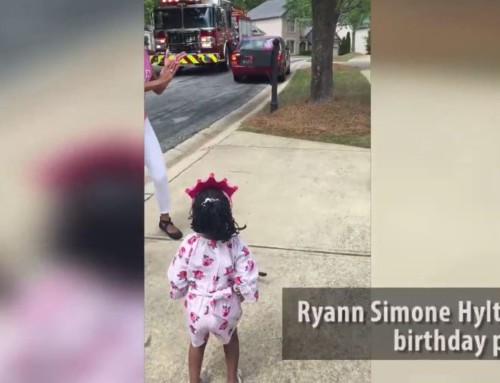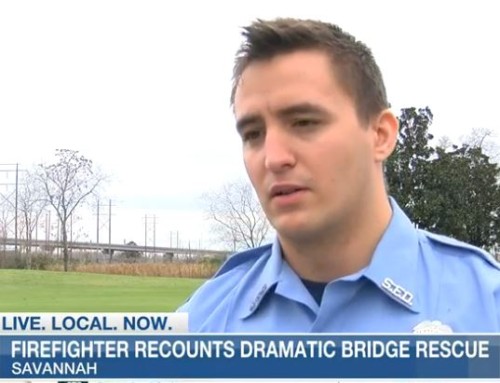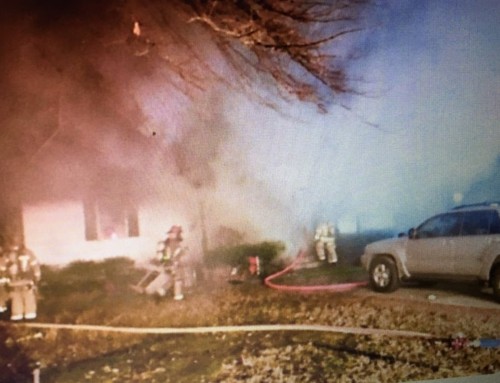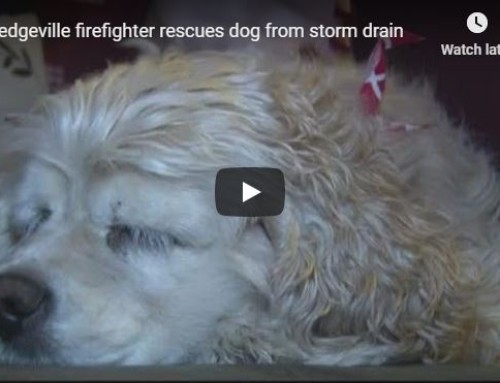Watch the report HERE››
(Naples Daily News) – Austin Bleiweiss was in a deep sleep during the second hour of a flight back from Puerto Rico last Tuesday when he heard the flight attendant’s scream. The scream for help jolted him awake.
A man on the plane was slumped over in his seat, his bronze skin now a shade of ashen gray. A woman sitting in the row of seats across from him heard a small moan and saw the man, who was sitting alone in his row, go limp. One of the flight attendants yelled to the rest of the passengers, asking for anyone with a medical background.
Bleiweiss, a firefighter and paramedic in the Naples Fire-Rescue Department, stood out of his aisle seat several rows back and came forward. He saw a middle-aged man wearing a long-sleeved collared shirt lying face up across the row’s three seats. He didn’t see any rise or fall in the man’s chest. He didn’t feel a pulse.
Bleiweiss’ training kicked in. He positioned himself at the man’s head and directed another helper to the man’s feet. Bleiweiss started chest compressions and called for an oxygen mask and the plane’s automatic defibrillator.
“At that point, when you have somebody that’s down and has cardiac arrest real quick, you’re likelihood of getting them back are very good if CPR, oxygen and [defibrillator] are used,” Bleiweiss said. “At that point, I’m thinking, ‘We can save this guy, if we can get our stuff together and get it done.'”
Bleiweiss, 31, knew what to do, in part, because he’s a nine-year veteran of the Naples fire department. But he also had been in a similar situation before.
Three years ago, during a flight to Las Vegas with his dad, Bleiweiss and a friend from the Bonita Springs fire department helped revive a man who lost consciousness. In that flight, the man was sitting in the seat directly in front of Bleiweiss, and Bleiweiss helped carry him into the aisle before starting chest compressions.
When he heard a call for help again last week, Bleiweiss thought he was dreaming, he said.
“This can’t be happening two times in my life,” he thought.
He knew from his previous experience that medical kits on airplanes have an oxygen mask different from the oxygen cups that drop from the ceiling during cabin destabilization. The mask is better because it pumps oxygen to the person, and in this case, the person wasn’t breathing.
Bleiweiss squeezed a bag attached to the mask two times to give the man breaths during CPR. After two rounds of chest compressions — about four minutes — Bleiweiss attached the defibrillator to the man’s chest.
By this point, the pilot was steering the plane toward an emergency landing in Ft. Lauderdale. Several rows back, Bleiweiss’ friend Mike Morris was watching from his seat.
“It was awesome to watch him do what he does,” Morris, 46, said. “It was super cool.”
Other passengers in the cabin remained mostly calm, Morris said.
“It was pretty quiet and everybody was just waiting to see what happened,” he said.
Bleiweiss used the defibrillator to shock the man once. It worked. The man regained a pulse. The man started to breathe on his own, but Bleiweiss continued to squeeze the oxygen bag every six seconds, or about 10 breaths per minute.
Bleiweiss never got the man’s name. He said there was a language barrier. Someone in the cabin tried to translate.
“What happened?” the man said. “I want to sit up.”
“He had basically just died,” Bleiweiss said. “He went into cardiac arrest. I tried to remain calm and tell him what happened.”
The plane had a speedy, rough, landing, and paramedics from the airport came onboard and carried the man out. After it was over, the passengers clapped for Bleiweiss. He even got an attaboy from the pilot.
Bleiweiss was also commended by Pete DiMaria, the acting fire chief of the Naples fire department. DiMaria sent an email celebrating Bleiweiss’ actions to City Manager Bill Moss. Moss forwarded the email to the City Council and called the story “amazing.”
DiMaria said it was rare for a firefighter to have to respond to an off-duty emergency, let alone have it happen twice on two different airplanes.
“I think it’s extraordinary,” he said.”
“But he and many of our other guys are trained to respond in that situation,” he added.
Bleiweiss said he’s planning another trip soon: In about two weeks, he’ll get married in Nicaragua.
“So I have another flight,” he said.
